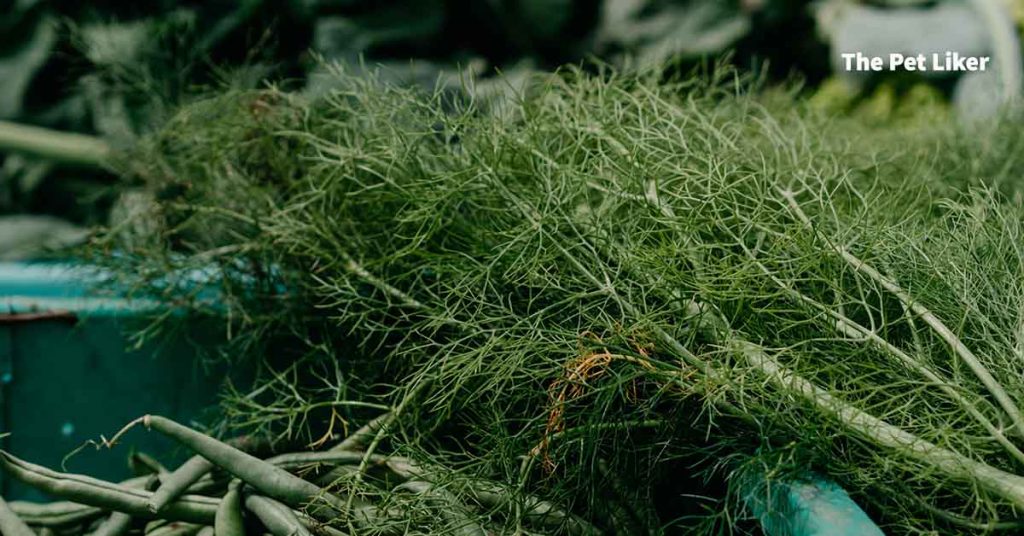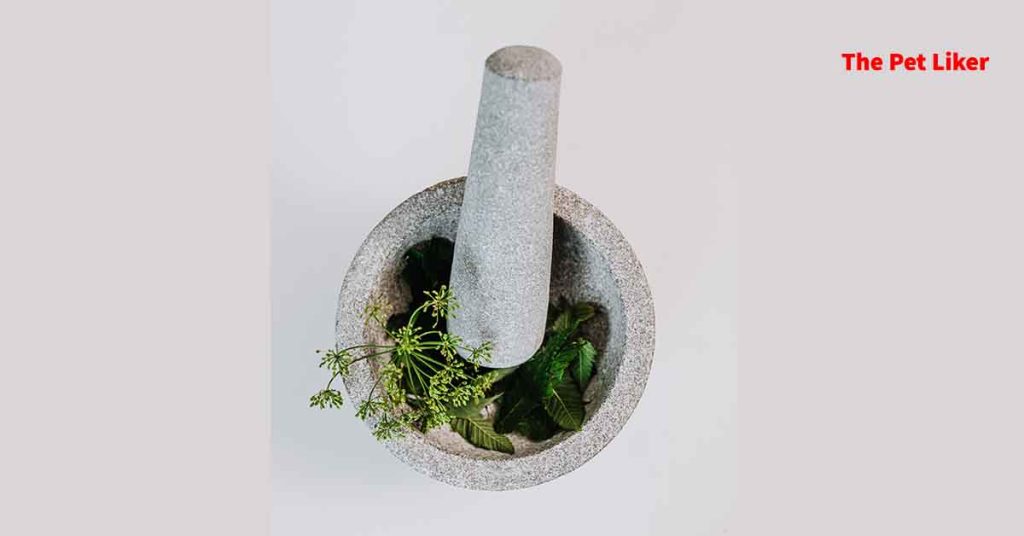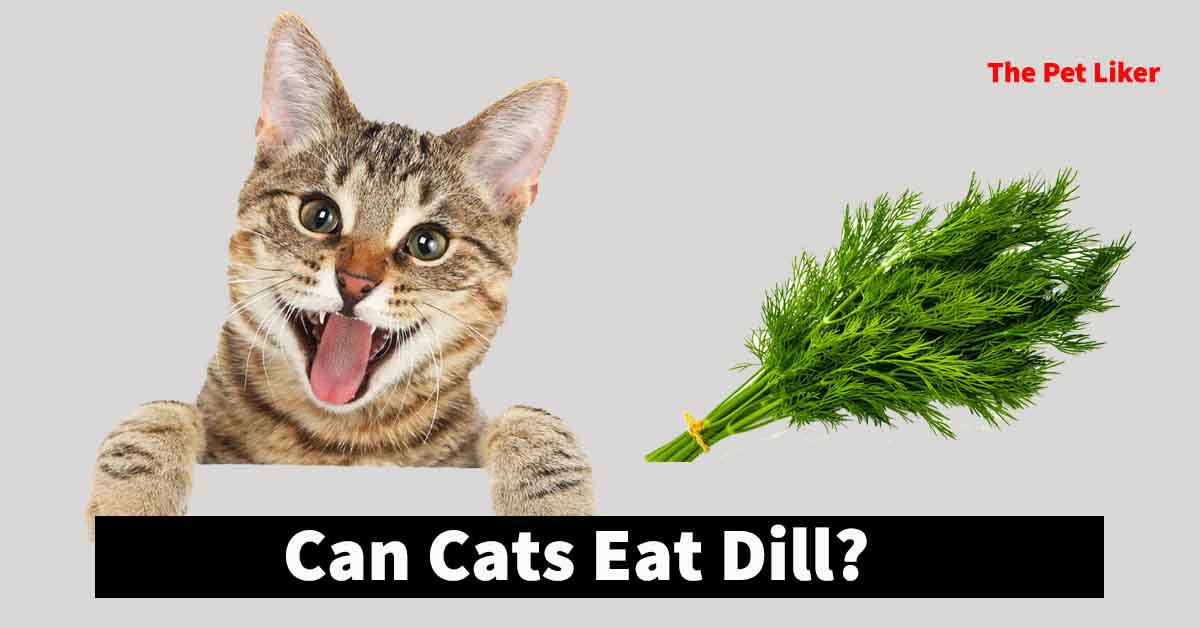Cats are curious creatures and often love to explore new flavors and textures when it comes to food. As a cat owner, you may be wondering if dill is safe for your feline friend to consume.
Dill is a commonly used herb in cooking, and you may have it in your garden or kitchen, but is it safe for your cat to eat?
In this article, we will explore whether cats can eat dill and what the potential risks and benefits of feeding it to your cat may be.
The Nutritional Value of Dill
Here are some of the nutritional values of dill:
- Vitamins and minerals: Dill is a good source of several vitamins and minerals, including vitamin C, vitamin A, folate, iron, and calcium.
- Antioxidants: Dill contains antioxidants, such as flavonoids and polyphenols, which can help protect the body’s cells from damage caused by harmful molecules called free radicals.
- Digestive health: Dill contains compounds that can help promote healthy digestion and may alleviate digestive issues such as gas and bloating.
- Anti-inflammatory properties: Dill contains anti-inflammatory compounds that may help reduce inflammation in the body and may be beneficial for conditions such as arthritis.
- Diuretic properties: Dill has diuretic properties that may help promote urine production and reduce water retention.
Can Cats Eat Dill?
Dill is generally safe for cats to eat in small amounts, but it is not a necessary part of their diet. In fact, most cats do not require herbs in their diet, and balanced commercial cat food or homemade diet should provide all the necessary nutrients for their health. If you want to offer your cat a treat or a small amount of dill, it is unlikely to cause harm.
Dill is low in calories and contains a variety of nutrients such as vitamins A, C, and K, calcium, and iron. These nutrients can be beneficial for cats in small amounts. It is important to note that cats have different nutritional requirements than humans, and their bodies may not be able to digest and absorb all the nutrients found in dill.
If you do decide to offer your cat dill, it is important to do so in moderation. Large amounts of dill may cause digestive upset or diarrhea in cats, as well as potentially cause an upset stomach or other health issues. Cats may be sensitive to some of the compounds found in dill and may have an allergic reaction or other negative side effects.
It is also important to note that not all herbs are safe for cats, and some can even be toxic. For example, catnip is a safe herb that many cats enjoy, but other herbs such as pennyroyal and tansy can be toxic and should be avoided.

Can Cats Eat Dill Weed?
Yes, cats can eat dill weed, also known as dill leaves or fronds. Dill weed is generally considered safe for cats in small amounts, and can even provide some nutritional benefits.
As mentioned earlier, dill weed is low in calories and contains vitamins and minerals such as vitamins A, C, and K, calcium, and iron. It’s important to offer dill weed to your cat in moderation as large amounts can cause digestive upset or diarrhea.
It’s also important to note that dill seeds are a different part of the plant and may not be safe for cats to eat. Dill seeds are often used in cooking and can have a more potent flavor than leaves.
There is not enough research available to determine whether dill seeds are safe or not for cats to consume. It’s best to avoid offering dill seeds to your cat and stick to offering them the leaves in small amounts as a treat.
Can Cats Eat Dill Plant?
Yes, cats can eat dill plant, which includes both the leaves and the stem. It is important to offer dill plants to your cat in moderation and to ensure that the plant is free from any pesticides or chemicals that could be harmful to your cat’s health.
While the dill plant is generally considered safe for cats to eat in small amounts, it’s important to note that it may cause digestive upset or diarrhea in some cats if consumed in large amounts.
Some cats may be sensitive to the compounds found in dill plants and may experience an allergic reaction or other negative side effects. It’s always a good idea to monitor your cat’s behavior and digestive health after introducing any new food to their diet.
Can Cats Eat Dill Pickles?
Cats should not eat dill pickles or any type of pickles, as they are not part of a cat’s natural diet and can cause digestive issues.
Pickles are typically high in sodium and vinegar, which can upset a cat’s stomach and cause gastrointestinal problems such as vomiting or diarrhea. The spices and seasonings used in pickling may not be safe for cats to consume.
It’s important to remember that cats have specific nutritional requirements and their digestive system is different from humans. While they may be curious and try to sample foods that are not intended for them, it’s important to keep in mind what foods are safe and healthy for their well-being.

Risks ❌
While dill is generally safe for cats to eat in moderation, there are some potential risks to consider when feeding it to your cat.
One of the main risks is that consuming too much dill can cause digestive upset, such as vomiting or diarrhea. This is because dill contains compounds that can irritate the digestive tract in large amounts.
Some cats may be allergic to dill or may have a sensitivity to its compounds, which can cause an allergic reaction or other negative side effects.
Another potential risk is that dill may interact with certain medications that your cat may be taking. For example, dill may have a blood-thinning effect and could interfere with medications that affect blood clotting.
If your cat is taking any medications, it’s important to consult with your veterinarian before offering them dill or any other new food.
Finally, it’s important to ensure that the dill you are offering your cat is free from any harmful chemicals or pesticides. These substances can be toxic to cats and can cause a range of health problems, from digestive upset to more serious health issues.
Wrapping Up
Hope this article answered your question “can cats eat dill?” Cats can eat dill in moderation, but it is important to offer it in small amounts and ensure that it is free from any harmful chemicals or pesticides.
While dill may not offer significant health benefits to cats, it can be a tasty and enjoyable treat for some cats. Cats should not be fed dill pickles or any type of pickles, as they can cause digestive issues and are not part of a cat’s natural diet.
As with any new food introduced to your cat’s diet, it’s always best to consult with your veterinarian if you have any questions or concerns.
Thank you for reading! Always stay with The pet liker!! Have a nice day!!!
FAQ:
Here are some frequently asked questions about cats and dill:
Q: Is dill toxic to cats?
A: Dill is generally not toxic to cats, but consuming too much dill can cause digestive upset. Additionally, some cats may be allergic to dill or may have a sensitivity to its compounds, which can cause an allergic reaction or other negative side effects.
Q: Can dill be beneficial to cats?
A: While dill is generally safe for cats to eat in moderation, there are no significant benefits to feeding dill to cats. While dill does contain some vitamins and minerals that can be beneficial for cats in small amounts, most cats receive all the nutrients they need from their regular cat food diet.
Q: How much dill can I give my cat?
A: It’s best to offer dill to your cat in small amounts, as a treat. A small amount of fresh dill, such as a few leaves, is generally safe for most cats. However, it’s important to monitor your cat’s behavior and digestive health after introducing dill to their diet.
Q: Can cats eat dill seeds?
A: Dill seeds are generally safe for cats to eat in small amounts, but it’s important to ensure that they are free from any harmful chemicals or pesticides.
Q: Can cats eat dill weed?
A: Dill weed is safe for cats to eat in moderation, but it’s important to offer it in small amounts and ensure that it is free from any harmful chemicals or pesticides.
Q: Can cats eat dill pickles?
A: Cats should not eat dill pickles or any type of pickles, as they can cause digestive issues and are not part of a cat’s natural diet.

